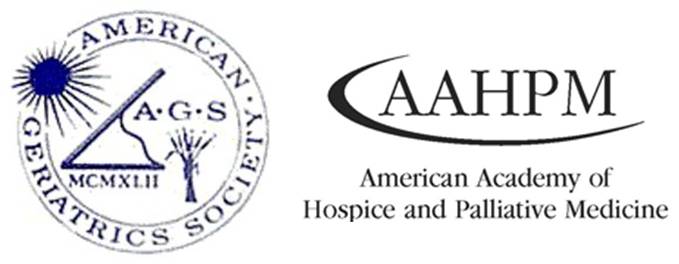

Geripal experts:
If you have to share ONE TIP with your fellow Geriatricians and Gerontologists about palliative care of older adults, what would it be?
The American Academy of Hospice and Palliative Medicine is co-sponsoring a pre-conference work shop with the American Geriatrics Society during the AGS annual meeting May 12-15th 2010.
Please share your favorite geripal tip and we will compile it and share it during the workshop with all the attendees.



